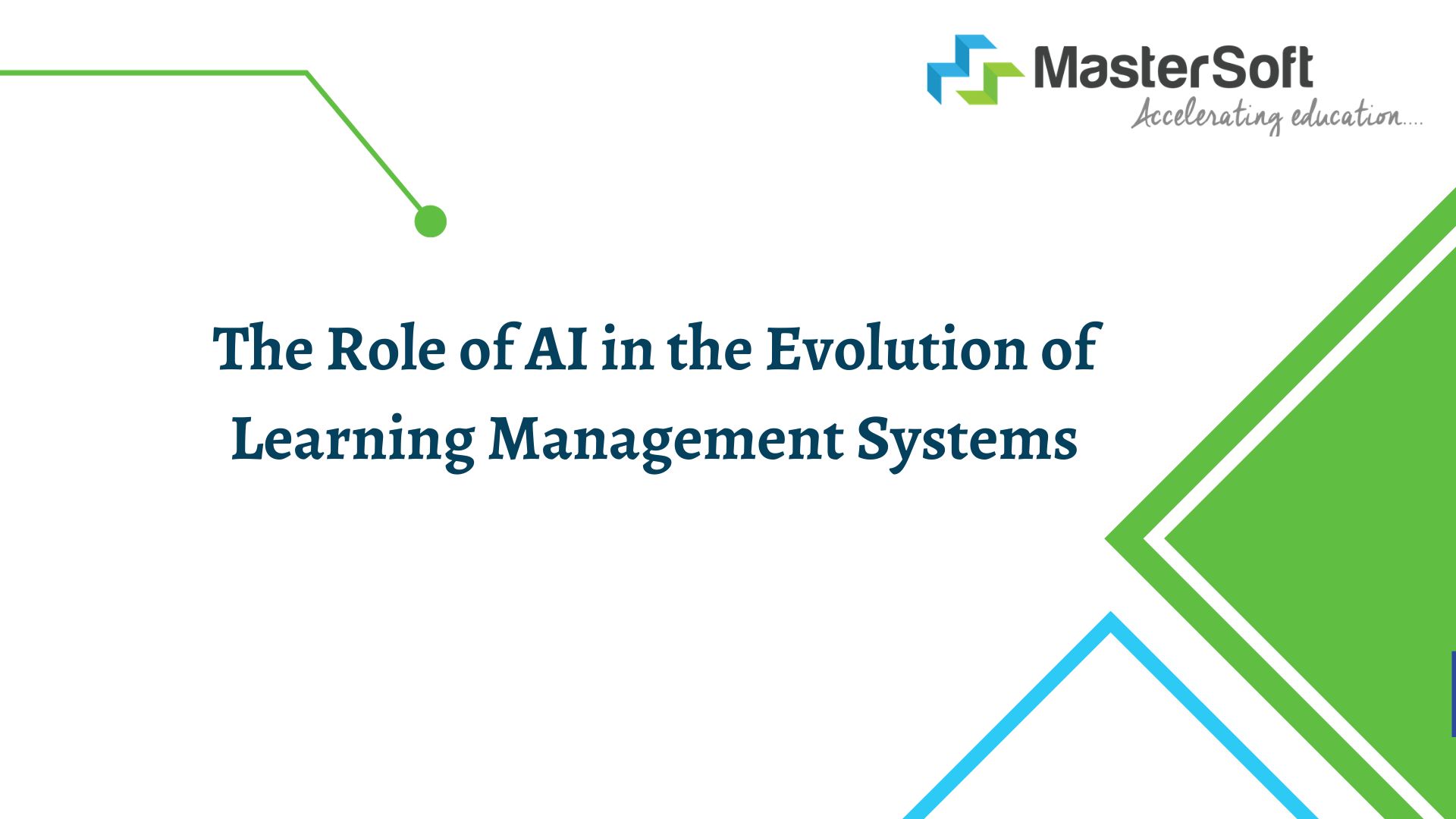The Role of AI in the Evolution of Learning Management Systems

In the ever-evolving landscape of education, Learning Management Systems (LMS) have become integral tools for delivering and managing learning content. With advancements in technology, Artificial Intelligence (AI) has emerged as a transformative force, shaping the future of LMS. This comprehensive guide delves into the pivotal role AI plays in the evolution of Learning Management Systems and its implications for educators, students, and organizations. From understanding the basics to envisioning the future, this guide explores how AI is redefining the LMS landscape.
Chapter 1: The Convergence of AI and Learning Management Systems
Before we dive into the specifics, let’s establish the foundational understanding of AI and its integration with LMS.
What is AI?
Artificial Intelligence is a field of computer science that focuses on creating systems capable of performing tasks that typically require human intelligence, such as problem-solving, learning, and decision-making.
The Marriage of AI and LMS
The integration of AI with Learning Management Systems enables LMS platforms to offer smart, data-driven features that personalize learning, enhance content delivery, and streamline the learning experience.
Chapter 2: Understanding the Impact of AI on Learning Management Systems
AI has brought about a significant transformation in the way LMS functions. Let’s explore the key impacts and advantages.
1. Personalized Learning
AI enables LMS to create personalized learning paths, offering customized content and assessments based on individual learner profiles. This personalization enhances engagement and improves learning outcomes.
2. Predictive Analytics
LMS powered by AI can predict learner performance, allowing instructors to intervene proactively when students are at risk of falling behind. This data-driven approach helps to keep learners on track.
3. Intelligent Content Delivery
AI-driven LMS platforms can recommend relevant content to learners, adapting to their needs and preferences. This ensures that learners receive content tailored to their individual requirements.
4. Automated Assessment and Feedback
AI automates assessment and grading, providing timely feedback to learners. This accelerates the evaluation process, allowing for faster course adjustments and personalized support.
5. Improved Administrative Efficiency
AI automates administrative tasks, such as course assignment and resource management, reducing the workload on educators and administrators.
Chapter 3: Enhancing the Learning Experience with AI in LMS
AI-powered LMS offers several features that significantly enhance the learning experience for students and educators.
1. Adaptive Learning
AI-driven LMS platforms adapt the difficulty of assignments and assessments based on a learner’s performance. This ensures that each learner is appropriately challenged.
2. Intelligent Chatbots
LMS can employ chatbots that offer immediate support and assistance to learners, addressing common queries and providing guidance throughout the learning journey.
3. Natural Language Processing
AI can analyze and understand human language, enabling LMS to provide more advanced language-based interactions and assist in content creation and translation.
4. Personalized Learning Recommendations
LMS powered by AI can offer personalized course recommendations, suggesting content and resources that align with a learner’s interests and objectives.
5. Continuous Feedback and Progress Tracking
AI helps LMS provide learners with real-time feedback on their performance and progress. This feature allows students to monitor their development and make adjustments as needed.
Chapter 4: The Future of AI in Learning Management Systems
The role of AI in LMS is evolving rapidly, and the future holds exciting possibilities.
1. AI-Driven Content Creation
AI-powered content generation will allow educators to create and adapt learning materials quickly, ensuring that content remains up to date and relevant.
2. Immersive Learning
AI can enable the development of immersive and interactive learning experiences through Virtual Reality (VR) and Augmented Reality (AR), making learning engaging and realistic.
3. Predictive Learning Analytics
Advanced AI analytics will offer even more precise predictive insights into learner performance, allowing for early interventions and more effective support.
4. Enhanced Assessment
AI will continue to transform assessment methods, providing innovative ways to measure a student’s understanding, creativity, and problem-solving skills.
5. Global Accessibility
AI-driven LMS will continue to prioritize accessibility features, ensuring that education is available to a diverse audience, regardless of physical or cognitive limitations.
Chapter 5: Preparing for the AI-Enhanced LMS
To leverage the benefits of AI in LMS effectively, educators, students, and organizations should consider the following strategies.
1. Embrace Lifelong Learning
To thrive in an AI-enhanced educational landscape, individuals should adopt a mindset of continuous learning and skill development.
2. Familiarize with AI Tools
Educators should invest time in understanding AI tools and how they can be integrated into their teaching methods.
3. Data Privacy and Security
As AI in LMS relies heavily on data, it’s essential to prioritize data privacy and security measures to protect student and institutional information.
4. Promote Ethical AI
AI should be implemented ethically, ensuring that decisions made by AI systems are transparent and fair, and that data privacy is respected.
Chapter 6: Conclusion
In conclusion, the role of AI in the evolution of Learning Management Systems is transformative. AI-driven LMS platforms offer personalized learning, predictive analytics, and intelligent content delivery, enhancing the learning experience for students and educators. As AI continues to advance, the future of LMS holds exciting possibilities, including AI-driven content creation, immersive learning, and enhanced assessment methods. To prepare for this AI-enhanced future, it



